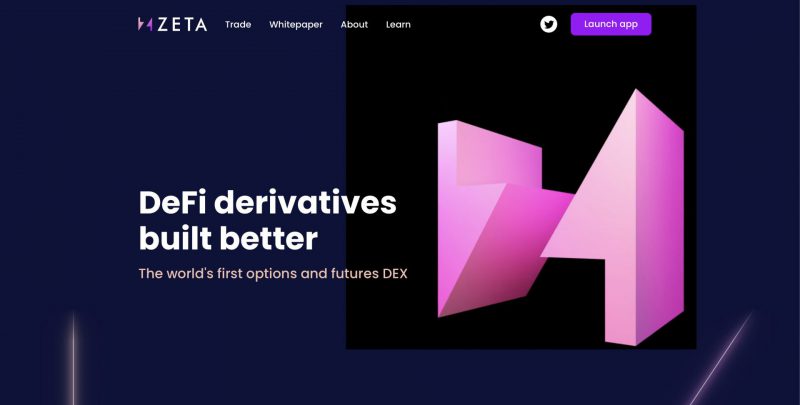Ethereum has already been losing its foothold to Solana in the NFT space. Many new projects are choosing Solana over Ethereum to bring their innovative and creative new ideas to the light of day, this includes Zeta Markets.
Zeta Markets Co-founder and CEO, Tristan Frizza, appeared on a Bloomberg interview to give his 2 cents on why the Zeta Markets network has chosen Solana, and not Ethereum, for its projects.
What is Zeta Markets?
Zeta Markets is a cutting-edge decentralized finance (DeFi) derivatives exchange with “traditional” finance-like characteristics.
READ ALSO: ShibRWD to be listed on the Bitmart exchange
Undercollateralized trading, portfolio cross-margining, sub-second mark-to-market updates, and quick settlement are among the capabilities offered by Zeta Markets, which are normally available on institutional-grade centralized exchanges.
The Platform’s order book and matching engine are powered by Serum, a decentralized exchange and platform that provides the underlying liquidity infrastructure for protocols built on Solana, and the pricing oracle is powered by the Pyth Network, a next-generation oracle platform that provides trusted and verifiable market data to decentralized applications.
Zeta Markets has also formed strategic collaborations with prominent derivatives market-makers in the cryptocurrency industry, LedgerPrime and Pattern Research, to provide day-one liquidity for all trades performed on the Platform.
Liquidity is critical to ensure that exchanges run smoothly and that prices are predictable, which will be especially crucial when DeFi structured goods take off on Solana.
Why Solana over Ethereum
While speaking with Bloomberg, Tristan pointed out that the features they wish to provide, Ethereum’s 15 transactions per second just don’t cut it. Whereas Solana’s 50,000 transactions per second, naturally seemed the worthy alternative.
READ ALSO: Fourth Biggest Whale Buys $10 Million Worth of these 5 Cryptos in two Days
Tristan also quoted Bank of America’s definition of Solana, “..the VISA equivalent of digital currencies.” Since Zeta plans to be an institutional-grade exchange, it requires some powerful technologies which currently are not available on a layer-1 network like Ethereum.
By launching on the Solana network, institutional investors can have access to classic financial instruments, such as undercollateralized trading and portfolio cross-margining, in a familiar yet decentralized manner.





